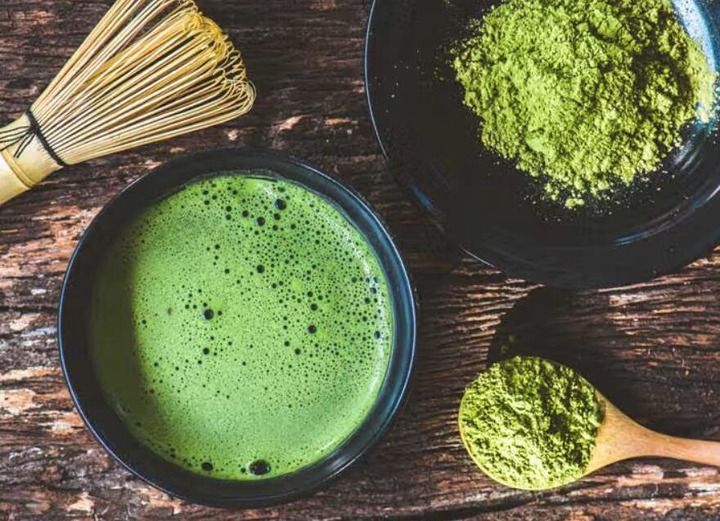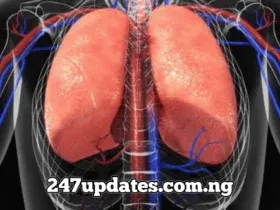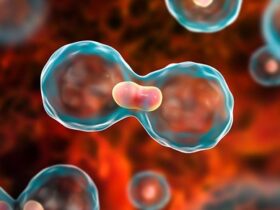Matcha is a finely ground powder made from specially grown and processed green tea leaves. It has gained immense popularity in recent years due to its unique flavor, vibrant color, and numerous health benefits. As more people incorporate matcha into their daily routines, a common question arises: does matcha have caffeine? The short answer is yes, but there’s much more to explore when it comes to this vibrant green tea powder. In this article, we’ll explore the caffeine content of matcha and how it compares to other popular beverages....Read The Full Story Here ▶
What is Caffeine?
Caffeine is a natural stimulant found in various plants, including coffee beans, tea leaves, and cacao pods. It works by stimulating the central nervous system, increasing alertness, and reducing fatigue. Caffeine is the world’s most widely consumed psychoactive substance, with many people relying on it to kickstart their day or provide a boost of energy.
Caffeine Content of Matcha
Matcha is a finely ground powder made from shade-grown green tea leaves. Unlike traditional green tea, where the leaves are steeped and then discarded, matcha involves consuming the entire leaf. This results in a higher concentration of nutrients and caffeine.
On average, a serving of matcha (about 1 teaspoon or 2 grams) contains approximately 35 mg of caffeine. However, this can vary depending on the quality of the matcha and the serving size.
How Much Caffeine is in Matcha?
The amount of caffeine in matcha can vary depending on factors such as the quality of the leaves, the growing conditions, and the preparation method. On average, a serving of matcha (about 1 teaspoon or 2 grams of powder) contains approximately 70 milligrams of caffeine. This is comparable to the caffeine content of a shot of espresso or a cup of brewed coffee.
However, it’s important to note that the caffeine content can range from 35 to 250 milligrams per serving, depending on the matcha variety and the amount used. Here’s a table comparing the average caffeine content of matcha to other popular beverages:
| Beverage | Serving Size | Caffeine Content |
|---|---|---|
| Matcha | 1 tsp (2 g) | 70 mg |
| Coffee (brewed) | 8 oz | 95 mg |
| Espresso | 1 oz | 64 mg |
| Black Tea | 8 oz | 47 mg |
| Green Tea | 8 oz | 28 mg |
| Soda (Cola) | 12 oz | 34 mg |
Factors Affecting Matcha’s Caffeine Content
Several factors can influence the caffeine content in your cup of matcha:
- Grade of Matcha: Matcha comes in different grades, with the ceremonial grade being the highest quality and containing the most caffeine. Lower grades, such as culinary grade, may have a slightly lower caffeine content.
- Serving Size: The more matcha you use per serving, the higher the caffeine content will be. A typical serving is about 1 teaspoon (2 grams), but some people may use more or less depending on their preferences.
- Preparation Method: The way you prepare your matcha can also affect its caffeine content. Using hotter water and longer whisking times can result in a slightly higher caffeine extraction.
12 Benefits of Matcha’s Caffeine
1. Sustained Energy Release
One of the most significant advantages of matcha’s caffeine is its slow, steady release into the bloodstream. Unlike coffee, which can cause a rapid spike and subsequent crash in energy levels, matcha provides a more gradual and sustained energy boost. This is due to the unique combination of caffeine and L-theanine, an amino acid that promotes relaxation and mental clarity.
The caffeine content in matcha is comparable to that of coffee, with a single teaspoon of matcha containing about 70mg of caffeine. However, the way the body processes this caffeine is vastly different. The L-theanine in matcha helps to control the absorption of caffeine. This results in a longer-lasting energy boost without the jitters or sudden crashes associated with coffee.
2. Improved Focus and Concentration
The synergistic effects of caffeine and L-theanine in matcha have been shown to enhance cognitive function, particularly attention, memory, and reaction time. This makes matcha an excellent choice for students, professionals, or anyone looking to sharpen their mental acuity and stay focused throughout the day.
L-theanine, found in high concentrations in matcha due to the shading process before harvest, works with caffeine to promote a state of calm alertness. This “zen mode” effect has been utilized by Buddhist monks for centuries to remain calm and alert during long hours of meditation.
3. Reduced Stress and Anxiety
While caffeine is often associated with increased anxiety and jitters, matcha’s caffeine works in harmony with L-theanine to promote a state of calm alertness. L-theanine has been shown to reduce stress and promote relaxation by increasing alpha-wave activity in the brain, counteracting the potential side effects of caffeine.
The lower dosage of caffeine in matcha compared to coffee also helps prevent the “coffee jitters” that many people experience. Matcha is gentler on the stomach and less likely to cause nervousness, lightheadedness, or hunger pangs sometimes associated with coffee consumption.
4. Boosted Metabolism and Fat Burning
Studies have shown that the catechins in matcha, particularly EGCG (epigallocatechin gallate). It can boost metabolism and increase fat burning, especially during exercise. When combined with caffeine, these effects may be even more pronounced. This makes matcha a valuable ally in weight management and body composition goals.
The catechins in matcha work together with caffeine to promote thermogenesis. This increased calorie burning can lead to improved weight loss and fat reduction over time.

5. Antioxidant Powerhouse
Matcha is renowned for its incredibly high antioxidant content, outranking even superfoods like blueberries and spinach. The catechins in matcha, along with their caffeine content, work together to protect the body from oxidative stress and inflammation. This can help support overall health, reduce the risk of chronic diseases, and promote healthy aging.
One of the most potent antioxidants found in matcha is EGCG. It has anti-inflammatory, anti-cancer, and anti-aging properties. By consuming matcha regularly, you can help protect your cells from damage caused by free radicals and oxidative stress.
6. Improved Cardiovascular Health
Regular consumption of green tea, including matcha, has been linked to a reduced risk of heart disease. The caffeine and catechins in matcha can help lower blood pressure, reduce inflammation, and improve cholesterol levels.
Studies have shown that drinking green tea regularly can help reduce the risk of heart attack and stroke. The antioxidants in matcha help to protect the heart and blood vessels from damage, while caffeine improves blood flow and circulation.
7. Enhanced Physical Performance
Matcha’s caffeine has been shown to improve physical performance, particularly endurance and high-intensity exercise. By mobilizing fatty acids from fat tissues, caffeine can help athletes and fitness enthusiasts push through tough workouts and improve their overall performance.
The combination of caffeine and antioxidants in matcha can also help reduce muscle damage and inflammation caused by exercise. This can lead to faster recovery times and improved athletic performance over time.
8. Skin Health and Anti-Aging Benefits
The potent antioxidants in matcha, combined with its caffeine content. It can help protect the skin from damage caused by UV radiation and other environmental stressors. This can lead to a more youthful, radiant complexion and may even help slow down the visible signs of aging.
The EGCG in matcha has been shown to protect against sun damage, reduce inflammation, and promote collagen production. By drinking matcha regularly, you can help keep your skin looking healthy, smooth, and youthful.
9. Digestive Health Support
Matcha’s caffeine has been shown to stimulate the production of gastric acid and support healthy digestion. Additionally, the prebiotic properties of matcha’s unique fibers can help promote the growth of beneficial gut bacteria.
The catechins in matcha have also been shown to have anti-inflammatory effects on the digestive system. This may help reduce the risk of conditions like inflammatory bowel disease and colorectal cancer.
10. Immune System Boost
The potent antioxidants in matcha, particularly EGCG, have been shown to support the immune system by protecting cells from damage and reducing inflammation. When combined with the energy-boosting effects of caffeine, matcha can help keep your immune system functioning optimally, especially during times of stress or illness.
Studies have shown that the catechins in green tea can help enhance the function of immune cells, such as T cells and natural killer cells. This can help improve your body’s defense against viruses, bacteria, and other pathogens.
11. Mood Enhancement
In addition, the combination of caffeine and L-theanine in matcha has a positive effect on mood, promoting feelings of calm, relaxation, and well-being. This can be particularly beneficial for those who struggle with anxiety, depression, or stress-related mood disorders.
L-theanine can increase the production of alpha waves in the brain. This can help improve your overall sense of well-being and promote a more positive outlook on life.
12. Versatility and Convenience
One of the best things about matcha’s caffeine is its versatility. You can enjoy it as a traditional hot tea, cold brew, or latte, or even incorporate it into various recipes like smoothies, baked goods, and savory dishes. This makes it easy to integrate matcha’s caffeine benefits into your daily routine, no matter your preferences or lifestyle.
Matcha is also incredibly easy to prepare, requiring just a few simple tools and ingredients. Whether you’re at home, at work, or on the go, you can quickly whisk up a delicious and energizing cup of matcha to help you power through your day.
Risks and Side Effects of Caffeine in Matcha
While matcha’s caffeine content offers several benefits, it’s essential to be aware of the potential risks and side effects associated with excessive caffeine intake. These may include:
- Insomnia or sleep disruption
- Anxiety and restlessness
- Digestive issues
- Increased heart rate and blood pressure
- Headaches
The FDA recommends limiting daily caffeine intake to 400 milligrams for healthy adults. Pregnant women, individuals with certain health conditions, and those sensitive to caffeine should consult their healthcare provider to determine a safe limit.

How to make Matcha at home?
Here’s a step-by-step guide on how to make delicious matcha at home:
Ingredients & Tools
- 1-2 tsp ceremonial grade matcha powder
- 2-4 oz hot water (around 175-185°F / 80°C)
- Bamboo whisk (chasen), milk frother, or handheld electric whisk
- Small sifter
- Matcha bowl (chawan) or wide mug
- Optional: sweetener like honey or maple syrup to taste
Instructions
- Sift 1-2 tsp matcha powder into a matcha bowl or mug to remove any clumps.
- Pour in about 2 oz of hot water, just under a boil (around 175-185°F). Cooler water helps prevent bitterness.
- Using a bamboo whisk, vigorously whisk the matcha and water in a “W” or “M” pattern until it becomes frothy and well combined, about 30 seconds[.
- Add more hot water to fill the bowl or mug. Sweeten to taste with honey or maple syrup if desired.
- Enjoy your matcha straight from the bowl!
Tips
- Use ceremonial-grade matcha for the best quality and flavor.
- If you don’t have a bamboo whisk, you can use a milk frother on a low heat/high speed or a handheld electric whisk.
- For a creamier latte, froth warm milk to add to the prepared matcha.
- Start with less matcha powder (1/2 tsp) if you find the flavor too strong at first.
The keys to great homemade matcha are using high-quality matcha powder, water that’s hot but not boiling, sifting the powder first to avoid clumps, and thoroughly whisking until frothy. With a little practice, you’ll be making cafe-quality matcha in your own kitchen!
How to Control Caffeine Intake from Matcha?
If you’re looking to manage your caffeine intake from matcha, here are a few tips:
- Choose lower-caffeine varieties: Opt for ceremonial-grade matcha, which typically contains less caffeine than culinary-grade matcha.
- Adjust your serving size: Start with a smaller amount of matcha (e.g., 1/2 teaspoon) and gradually increase it to find your optimal balance.
- Be mindful of timing: Avoid consuming matcha late in the day, as the caffeine may interfere with your sleep quality.
Alternatives to Matcha for Those Avoiding Caffeine
For those looking to avoid caffeine altogether, there are several alternatives to matcha:
- Decaffeinated matcha: Some brands offer matcha that has undergone a decaffeination process, reducing the caffeine content while preserving the flavor and health benefits.
- Herbal teas: Caffeine-free herbal teas, such as chamomile, peppermint, or rooibos, offer a flavorful and soothing alternative to matcha.
- Non-tea alternatives: Other naturally caffeine-free beverages, like herbal infusions or golden milk (made with turmeric).They can provide similar health benefits without the stimulating effects of caffeine.
Conclusion
In summary, matcha does contain caffeine, with an average of 70 milligrams per serving. While matcha’s caffeine content offers several potential benefits, such as improved cognitive function, cardiovascular health, and possibly anti-cancer properties, it’s crucial to be mindful of your tolerance and to consume it in moderation. By understanding the caffeine content of matcha, you can make informed decisions about incorporating it into your daily routine.































Leave a Review